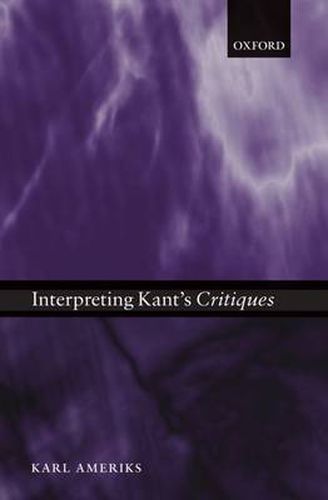Karl Ameriks here collects his most important essays to provide a uniquely detailed and up-to-date analysis of Kant’s main arguments in all three major areas of his work: theoretical philosophy (Critique of Pure Reason), practical philosophy (Critique of Practical Reason), and aesthetics (Critique of Judgment). A substantial, specially written introduction sets out common themes in the structure and interpretation of Kant’s Critical philosophy. The first part of the book includes several of the author’s well-known essays on the Critique of Pure Reason , emphasizing Kant’s central theoretical notions of a transcendental deduction and transcendental idealism, and providing an extensive review of recent English and German scholarship in this area. Part II includes new discussions of the Critique of Practical Reason and its relation to Kant’s other main work in moral theory, the Groundwork of the Metaphysics of Morals. Part III focuses on taste and the Critique of Judgment, and on the controversial hypothesis that even in this area Kant’s position is fundamentally objective and conceptual. This collection has two distinctive characteristics. First, it demonstrates in detail how, for understanding the basic structure of any one of Kant’s Critiques, it is extremely important and helpful to keep in mind its logical and historical relation to Kant’s other Critiques - and hence to track the parallels and differences between theoretical, practical, and aesthetic forms of judgment and reason. Secondly, the book makes interpretation itself a central issue. That is, not only does it offer a series of interrelated interpretations of Kant’s main works, along with a detailed comparison and assessment of other interpretations, but it also argues that the difficulty of interpretation is itself a central feature of the Critical philosophy, and that the difficulties of that philosophy have become paradigmatic for modern philosophy in general. Interpreting Kant’s Critiques complements and extends the arguments of the author’s earlier books, Kant’s Theory of Mind and Kant and the Fate of Autonomy. It will find a wide readership not just amongst Kant specialists but among the many philosophers following in his footsteps.
Read More





